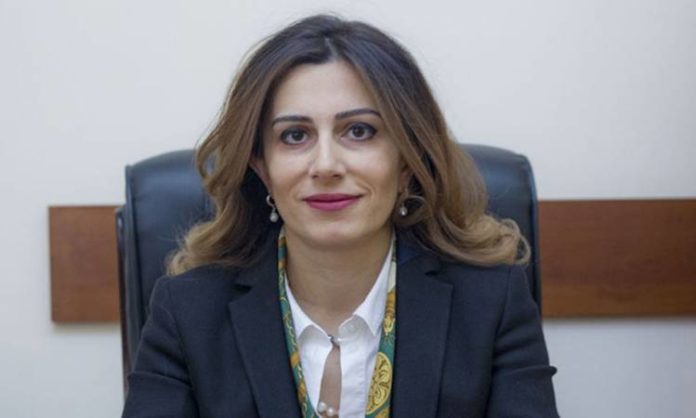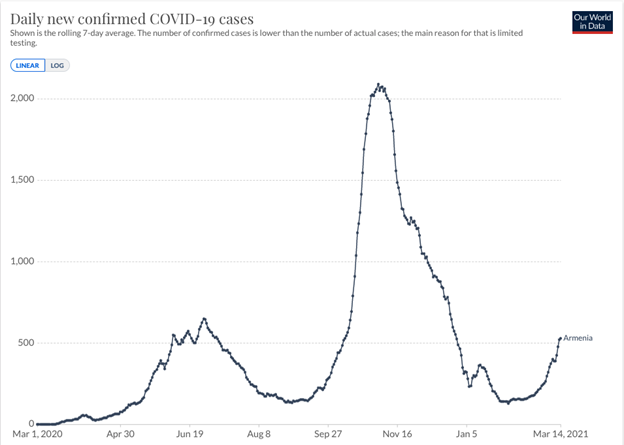YEREVAN – Several hundred Armenians have already been inoculated against the COVID-19 virus as the country’s public health officials launch the first stage of its vaccination strategy. According to Health Minister Anahit Avanesyan, the first vaccination campaigns were expected to start in early February but were delayed by several weeks due to gaps in the global supply chain.
Armenia is a self-funding participant in the World Health Organization’s Covid-19 Vaccines Global Access (COVAX) initiative designed to provide equitable access for developing countries. Last year, Armenian authorities signed a $6 million contract with COVAX to supply at least 600,000 doses of the vaccine. However the COVAX system doesn’t allow participating countries to select their vaccine of choice, instead supplying doses as they become available.
Armenia initially expressed interest in purchasing the vaccine developed by the American pharmaceutical giant Moderna, which is co-founded by Armenian entrepreneur and philanthropist Noubar Afeyan. However, with most of Moderna’s early doses already earmarked for US consumption, the Armenian government has instead approved the Russian-produced Sputnik V and the British-designed AstraZeneca for distribution. Both these candidates require a two-step inoculation process. Minister Avanesyan explained that Armenia subjects vaccine candidates to a three-step testing process before approving them for public use.
Of the 200 candidates who were injected with the initial testing dose for the Sputnik V vaccine, none experienced serious side effects, though several reported higher temperatures for up to two days after the inoculation. Vaccination will prioritize healthcare workers, the elderly, and other vulnerable demographics. Educators, civil servants, rescue workers, law enforcement and military personnel will be the target of the second phase before the vaccine will be made available to the general public. Vaccinations will be free for government workers and low income individuals.
Armenian public health authorities say that the country currently has enough doses to inoculate at least 15 percent of Armenia’s population by the end of 2021, but Avanesyan announced last week that the government was in negotiations with Russia to acquire a large shipment of the Sputnik V vaccine in order to ramp up the process.
The vaccination campaign launches amid a renewed rise in new COVID-19 cases being recorded in the country, which some public health experts warn might be the beginnings of a third wave of the pandemic.









